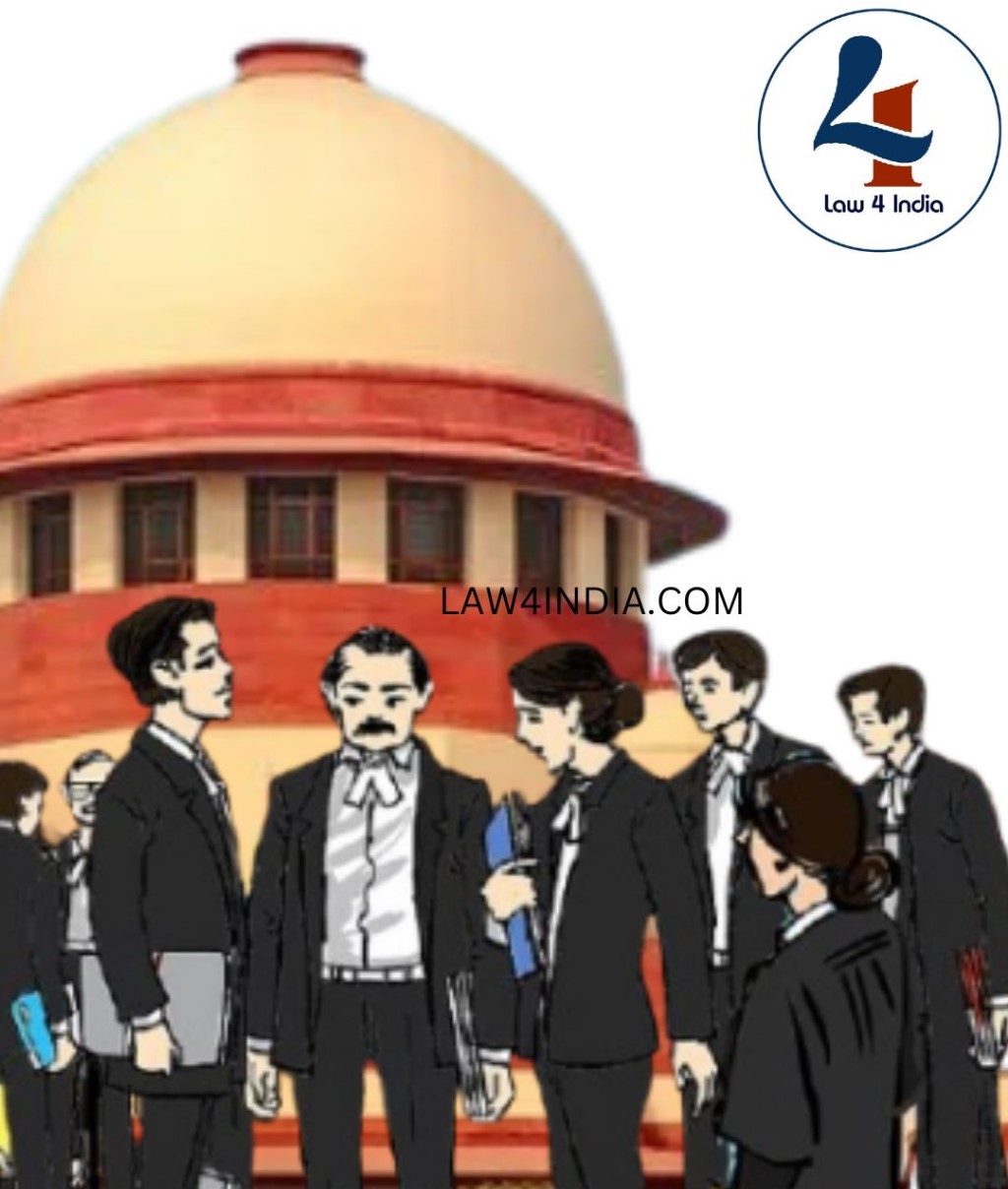–By Md Faisal Khalid
Advocates-on-Record (AoRs) – They are special class of lawyers who has the authority by the Supreme Court to file court documents and file for client representation. According to the rules, no advocate other than an advocate on record can file an appearance or any other pleading or act for a party before the Supreme Court of India. No advocate other than an advocate on record may appear and plead in any case unless he is instructed so by an advocate on record.
To Attain an AOR Status , an Advocate must:
· Pass a qualifying examination conducted by the Supreme Court to demonstrate proficiency in its procedures and practices.
· Register with a State Bar Council and practice law for at least four years.
· Complete one year of training under an existing AoR.
· Maintain an office within a prescribed radius of the Supreme Court
Supreme court rules 2013 establishes this system where experienced and qualified advocates are permitted to take the cases in the highest institution of the country. The courts mostly depends on Advocate on record for its proper functioning. Advocate on record has the responsibility totae before the court and file court petitions appeals and maintains pure accuracy while advocating their client representation in court . The Supreme Court always accepts complete accountability for correct filing of the details by its affiliates although someone else generated the drafting content. A Officer authorised who commits misconduct or shows negligence could lose their position on the AoR register if taken actions by the court. Through the system Supreme Court preserves quality and fair processes of legal procedures in its courtroom.
Rule 10 of Order 4 of the Supreme Court Rules 2013 states: If an advocate has an improper conduct he would be governed under this section. The Court has all the powers to remove an Advocate-on-Record from its register if any misconduct or unethical actions is detected.
Facts of the Case
The appellant was convicted under section 302 and 307 of the Indian penal code ( murder and attempt to murder ). Trial court sentenced him life imprisonment and stated remission appeal would only be considered once he had completed 30 yrs of imprisonment . Following to which , Accused appealed Trial Court’s Order in High court. High Court after reviewing the appeal reduced it to 16 years.
The appellant filed a Special Leave Petition (SLP) and challenged Delhi High Court order which dealt with another prisoner Rani who was seeking premature release under a government policy. Notably, the appellant had no direct connection with Rani’s case but still attempted to challenge the order. Initially, The Supreme Court allowed the SLP to proceed but later discovered suppressed facts and directed appellant to withdraw the plea and gave him further time to surrender.
AOR Shri Jaydip Pati and Sr. Adv Shri Rishi Malhotra were directed to submit affidavit. To address the issue Court also sought assistance from Vipin Nair, head of the Supreme Court Advocates-on-Record Association (SCAORA). Both Sr. Advocates blamed each other in their affidavits he court expressed serious concern over the lack of responsibility shown by the Advocate-on-Record, emphasizing the disturbing negligence in handling legal duties.
Issue
Whether the supresson of facts in SLP was misleading ?
Wheter there was a professional misconduct by Jaydip Pati advocate on record and Rishi Malhotra senior advocate ?
Court observation
Apex Court observes that AORs have the responsibility to check whether the documents are correct or not even though those documents are prepared by other fellow advocate
Further, Supreme court directs AORs citing they must themselves verify the contents of a plea before submitting it to court and if they do not follow rules and regulations will held liable for Penalty under Order 4 Rule 10 of the Supreme Court Rules Act, 2013.
Moreover , Court strongly criticized AORs for showing lack of responsibility highlighting such negligence will not be tolerable and appropriate action will be taken against AORs if they violates Rule 10 of Order 4 of the Supreme Court Rules Act, 2013.Bench Comprising of Justices Abhay S Oka and Augustine George Masih observed several facts are missing in the petition. Court
Court decision
Supreme Court dismissed the plea while directing that the issue be decided by a larger bench led by the Chief Justice of India (CJI).
Apex Court issued following directions to the AORs:
- Advocate on record must thoroughly examine the case and then approve it for filing in the court and should have accuracy.
- Advocate on record should clarify the uncertainty in the case by reaching out to a local lawyer. Additionally area office staff must ensure that no facts are being suppressed.
- Advocate on record will be held accountable for the mistakes and cannot shift liability to onto the clients and other advocates.
- Even after filing, the AOR must continue assisting the court in the case proceedings, regardless of whether another counsel represents the matter.
- Legal practitioners should act as Amici Curiae (friends of the court) rather than merely lending their names to cases. They have an advisory duty to aid the court in expediting proceedings and ensuring justice is served efficiently.
Case Title – Jitender @ Kalla v. State Govt.of NCT of Delhi &Anr
Md Faisal Khalid is a 2nd year LL.B student at Campus Law Centre (University of Delhi)

